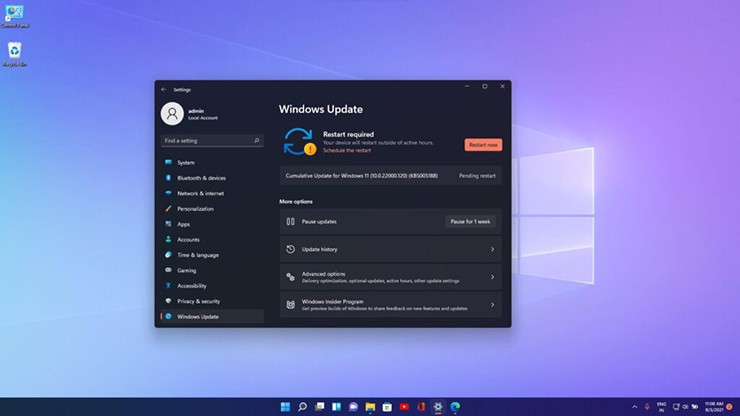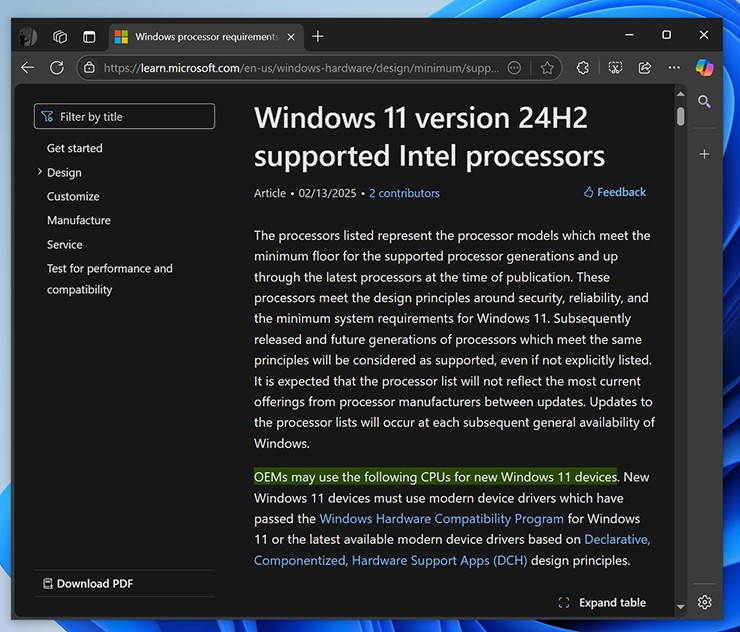Millions of PC users breathe a sigh of relief with new announcement from Microsoft
However, this information is incorrect as Microsoft has confirmed in a report that Windows 11 hardware requirements have not changed since 2021. According to the company, the requirements for Windows 11 version 24H2 are also no different, unless users want to use AI features that require an NPU.

Windows 11 24H2 still runs fine on consumer PCs using 8th, 9th, and 10th generation Intel CPUs.
So where did the rumor come from? It all started with Microsoft's announcement of official hardware requirements on its website, which is meant to make it easier for OEMs like HP and Lenovo to get the information they need to develop new products.
On February 13, Microsoft updated its OEM support document titled 'Windows 11 version 24H2 supports Intel processors', with new information about version 24H2. One of the notable changes is that the document does not list Intel's 8th, 9th, and 10th generation CPUs, leading to the misconception that these chips are no longer supported for Windows 11 24H2.
However, this document is primarily intended for PC manufacturers, not consumers. Previously, the company recommended that consumers use the PC Health Check app to check compatibility with Windows 11.

Users should use PC Health Check to check compatibility.
Microsoft has essentially clarified that OEMs can use newer CPUs for Windows 11 devices and do not recommend using older CPUs to install this update. This is actually not a big deal, as OEM support documents are always updated to recommend newer processors for new products.
In its latest response, Microsoft asserted that 'the requirements have not changed', stressing that the support document does not affect current Windows support for consumers. This is also why consumer PCs with Intel 8th, 9th, or 10th generation CPUs can still run the Windows 11 24H2 update without any issues.

Previous misleading documentation from Microsoft.
To check if your PC is officially supported, Microsoft recommends using the PC Health Check app and not looking at OEM documentation. The company also says it won't block users from installing Windows 11 24H2 on unsupported devices. Consumers can still use Windows 11 as long as their device has TPM 2.0, and even if they don't have a TPM, they can bypass the requirements by modifying the registry, although that's not recommended.